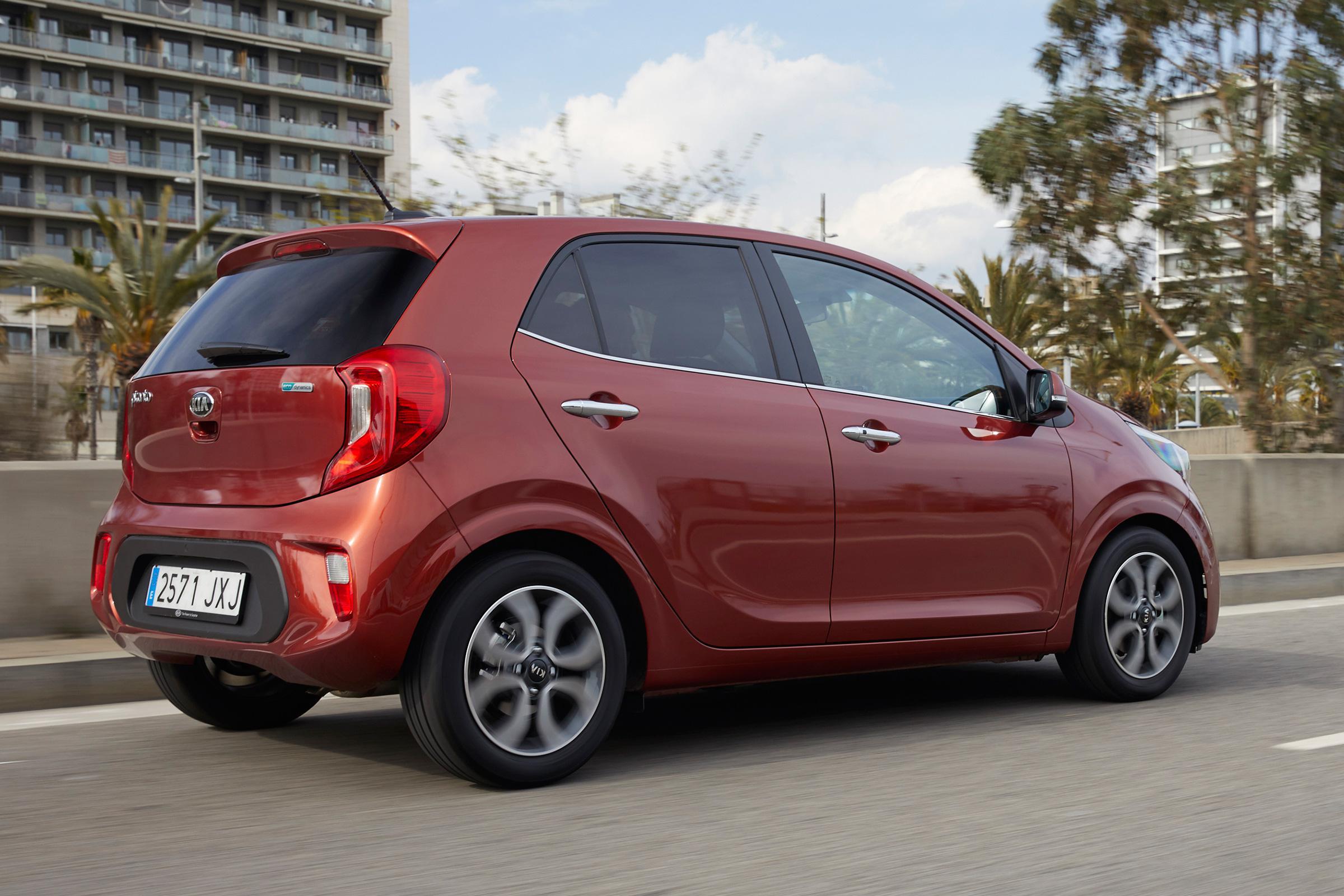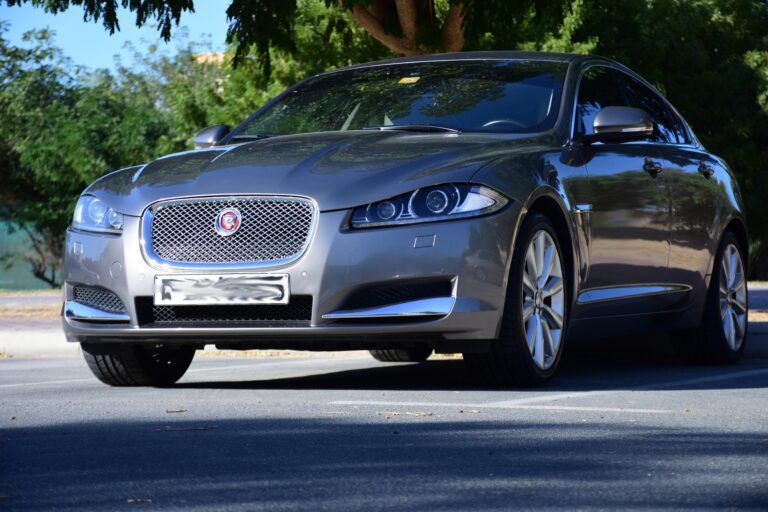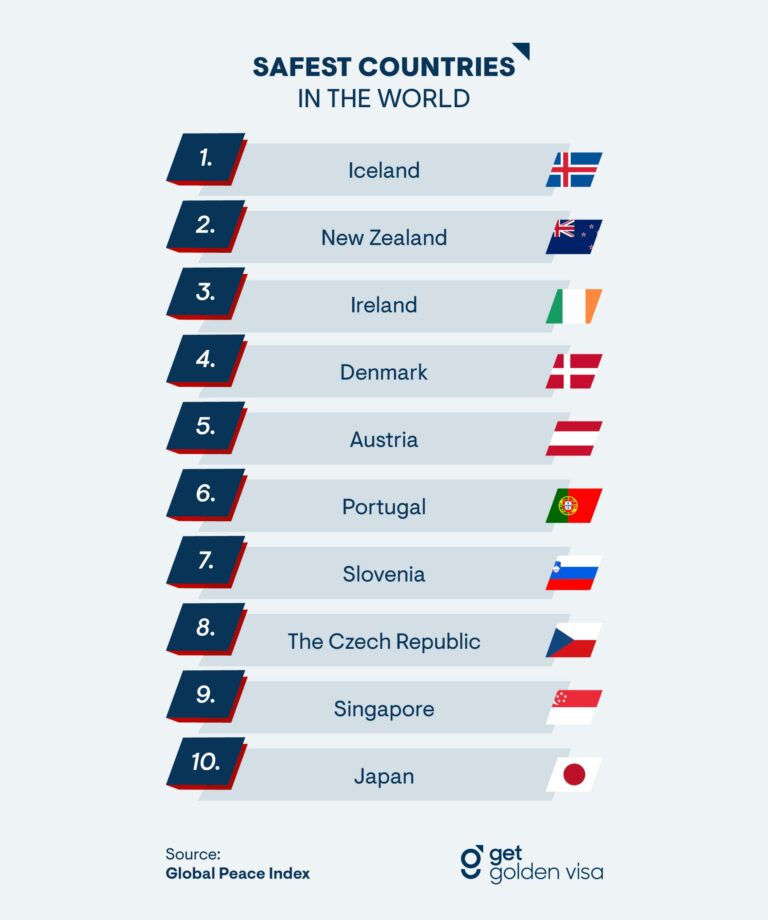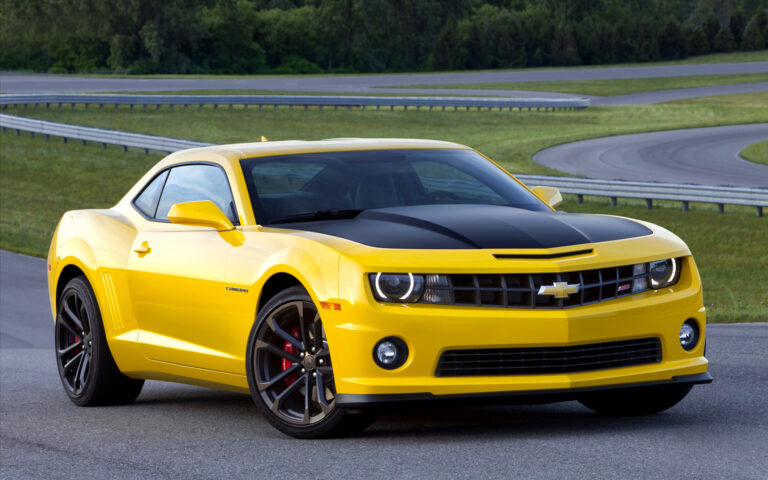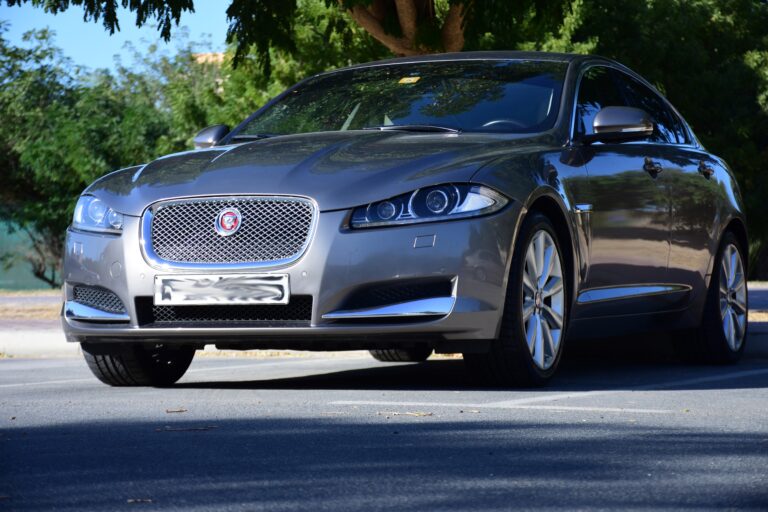Japanese Car Brands List: A Comprehensive Guide to Automotive Excellence
Japanese Car Brands List: A Comprehensive Guide to Automotive Excellence cars.truckstrend.com
Japan has long stood as a titan in the global automotive industry, renowned for producing vehicles that consistently set benchmarks for quality, reliability, and innovation. The "Japanese Car Brands List" isn’t just a collection of names; it represents a legacy of engineering prowess, a commitment to customer satisfaction, and a profound impact on how the world moves. From fuel-efficient compacts to robust SUVs and luxurious sedans, Japanese car brands offer an unparalleled diversity of options, catering to virtually every need and preference. Understanding these brands is key to appreciating their global influence and making informed decisions in the automotive market.
This comprehensive guide will delve into the major players on the Japanese car brands list, exploring their unique philosophies, iconic models, and the defining characteristics that have earned them a formidable reputation worldwide.
Japanese Car Brands List: A Comprehensive Guide to Automotive Excellence
The Rise of Japanese Automotive Power: A Brief History
The journey of Japanese car brands from post-World War II reconstruction to global dominance is a testament to resilience, strategic vision, and relentless pursuit of perfection. Initially focused on domestic needs, Japanese manufacturers quickly adopted and refined manufacturing principles like "Kaizen" (continuous improvement) and "Just-in-Time" inventory management, leading to unprecedented levels of efficiency and quality.
The 1970s oil crisis played a pivotal role, as Japanese cars, with their superior fuel efficiency and compact designs, offered a compelling alternative to larger, gas-guzzling American vehicles. This period cemented their reputation for practicality and economy. Over the decades, they expanded their offerings, investing heavily in research and development to lead in areas like hybrid technology, advanced safety features, and electric vehicles, maintaining their competitive edge and global appeal.
Key Players on the Japanese Car Brands List
Let’s explore the prominent names that define the Japanese automotive landscape:
1. Toyota: The Global Behemoth
Overview: Toyota Motor Corporation is the largest automaker globally and arguably the most influential Japanese brand. Synonymous with reliability, durability, and high resale value, Toyota’s philosophy centers on quality and continuous improvement.
Key Strengths: Pioneering hybrid technology (Prius), vast global footprint, strong focus on safety, diverse lineup ranging from subcompacts (Yaris) to full-size trucks (Tundra) and popular SUVs (RAV4, Highlander).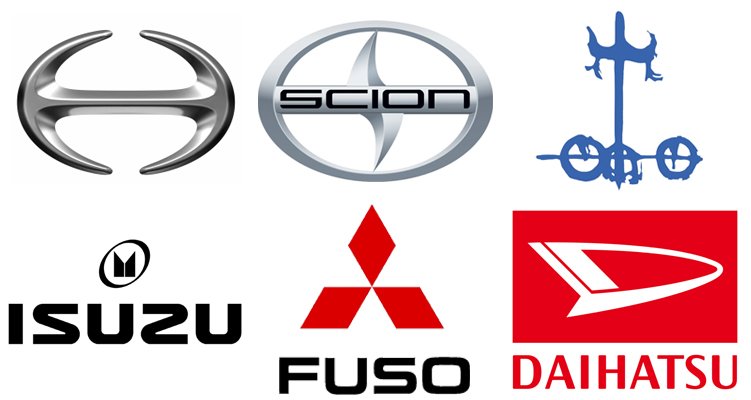
Luxury Arm: Lexus, established in 1989, quickly became a benchmark for luxury, reliability, and refined performance, challenging established European brands.
2. Honda: Engineering Excellence and Innovation
Overview: Honda Motor Co., Ltd. is celebrated for its engineering prowess, particularly its high-revving, fuel-efficient engines (VTEC technology). Beyond cars, Honda is the world’s largest motorcycle manufacturer and produces a wide range of power equipment.
Key Strengths: Sporty driving dynamics in many models, fuel efficiency, innovative engine technology, strong reputation for reliability, popular models like the Civic, Accord, CR-V, and Pilot.
Luxury Arm: Acura, launched in 1986, was the first Japanese luxury automotive brand, known for performance, precision craftsmanship, and advanced technology.

3. Nissan: Bold Design and EV Leadership
Overview: Nissan Motor Co., Ltd. has a history of innovation and bold design choices. Part of the Renault-Nissan-Mitsubishi Alliance, it leverages global resources for development.
Key Strengths: Early leader in mass-market electric vehicles (Nissan Leaf), innovative infotainment systems, a wide array of SUVs (Rogue, Pathfinder), and performance cars (GT-R, Z).
Luxury Arm: Infiniti, launched shortly after Lexus and Acura, focuses on expressive design, dynamic performance, and advanced technology.
4. Mazda: The Driver’s Choice
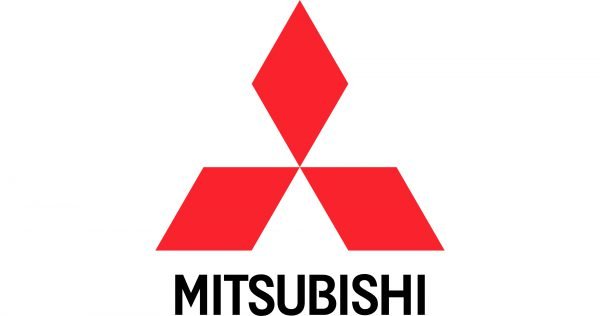
Overview: Mazda Motor Corporation stands out for its "Jinba Ittai" philosophy – the oneness of horse and rider – translating into vehicles with exceptional driving dynamics and engaging performance.
Key Strengths: Focus on driving enjoyment, innovative Skyactiv technology for efficiency and performance, elegant "Kodo" design language, rotary engine heritage (RX series), popular models like the Mazda3, CX-5, and MX-5 Miata.
5. Subaru: All-Wheel Drive and Boxer Engines
Overview: Subaru Corporation (formerly Fuji Heavy Industries) has carved out a unique niche with its signature Symmetrical All-Wheel Drive system and horizontally opposed "Boxer" engines, offering superior balance and traction.
Key Strengths: Exceptional all-weather capability, strong emphasis on safety (EyeSight driver assist technology), rugged design, high resale value, cult following among outdoor enthusiasts. Popular models include the Forester, Outback, Crosstrek, and WRX.
6. Mitsubishi: Resurgence and SUV Focus
Overview: Mitsubishi Motors Corporation, part of the Renault-Nissan-Mitsubishi Alliance, has faced challenges but is now focusing on a resurgence, particularly in the SUV and plug-in hybrid segments.
Key Strengths: Rich rally heritage, durable SUVs (Outlander, Eclipse Cross), pioneering plug-in hybrid technology (Outlander PHEV), affordability.
7. Suzuki: Compact and Economical
Overview: Suzuki Motor Corporation is a major player in motorcycles and compact cars, particularly popular in Asian and emerging markets due to their affordability, fuel efficiency, and maneuverability.
Key Strengths: Expertise in small, lightweight vehicles, strong presence in two-wheelers, Jimny (iconic off-roader), Swift (popular compact).
Defining Characteristics of Japanese Cars
The widespread success of Japanese car brands is not accidental. It stems from a consistent adherence to core principles:
- Unrivaled Reliability and Durability: This is perhaps the most celebrated trait, leading to lower maintenance costs and longer vehicle lifespans.
- Exceptional Fuel Efficiency: A strong focus on efficient engines and aerodynamic designs, especially evident in their pioneering hybrid technology.
- Advanced Technology and Safety: Early adopters of sophisticated safety features (e.g., adaptive cruise control, lane-keeping assist) and innovative infotainment systems.
- High Resale Value: Due to their reputation for reliability and longevity, Japanese cars consistently command strong prices in the used car market.
- Practicality and Thoughtful Design: Interiors are often ergonomically designed, with intuitive controls and smart storage solutions.
- Global Dealer and Parts Network: Extensive networks ensure easy access to service and genuine parts worldwide.
Why Choose a Japanese Car? Practical Advice for Buyers
For many consumers, a Japanese car represents a sensible and reliable investment. Here’s why you might consider one:
- Peace of Mind: Their proven track record for reliability means fewer unexpected repairs and less downtime.
- Cost-Effectiveness: While initial prices can be competitive, the real savings come from lower running costs, better fuel economy, and higher resale values.
- Wide Selection: From economical city cars to family-friendly SUVs, powerful trucks, and luxurious sedans, there’s a Japanese vehicle for almost every need and budget.
- Safety First: Japanese brands are consistently at the forefront of automotive safety innovation, often earning top ratings in crash tests.
- Environmental Responsibility: With strong investments in hybrid and electric vehicle technologies, Japanese brands offer excellent options for eco-conscious buyers.
Important Considerations When Buying:
- Research Specific Models: While brands have general characteristics, individual models within a brand can vary significantly in features, performance, and reliability ratings.
- Test Drive: Always test drive multiple models to find the one that best fits your driving style and comfort preferences.
- Budget Beyond Purchase Price: Factor in insurance, fuel, maintenance, and potential depreciation.
- New vs. Used: Japanese cars hold their value well, making used models a great option for saving money without sacrificing much reliability.
Challenges and Evolving Perceptions
While Japanese car brands largely enjoy a positive reputation, they aren’t without challenges. Some critics occasionally perceived them as less "exciting" or "characterful" compared to certain European counterparts, focusing more on practicality than passion. However, this perception is rapidly changing, with brands like Mazda emphasizing driving dynamics, and others like Toyota and Honda pushing the boundaries of design and performance. The rise of Korean manufacturers and the continued innovation from European and American brands also ensures fierce competition in the global market.
Conclusion: A Legacy of Excellence
The Japanese Car Brands List is a powerful testament to a nation’s dedication to automotive excellence. Brands like Toyota, Honda, Nissan, Mazda, and Subaru have not just sold cars; they have built trust, redefined quality standards, and continuously innovated to meet evolving global demands. Their legacy of reliability, efficiency, and advanced technology ensures they will remain at the forefront of the automotive industry, continuing to shape the future of transportation for generations to come.
Japanese Car Brands: Representative Market Position & Offerings
| Brand | Luxury Arm | Primary Market Focus / Typical Price Range (Representative) | Key Characteristics / Notable Models |
|---|---|---|---|
| Toyota | Lexus | Economy to Premium ($20,000 – $60,000+) | Reliability, Hybrids, High Resale Value (Corolla, Camry, RAV4, Prius) |
| Honda | Acura | Economy to Mid-Premium ($22,000 – $55,000+) | Engineering, Fuel Efficiency, Sporty (Civic, Accord, CR-V) |
| Nissan | Infiniti | Economy to Mid-Premium ($20,000 – $60,000+) | Innovation, EVs, Diverse SUVs (Leaf, Rogue, Altima, GT-R) |
| Mazda | N/A | Mid-Range to Premium ($25,000 – $45,000+) | Driving Dynamics, Design, Skyactiv Tech (Mazda3, CX-5, MX-5 Miata) |
| Subaru | N/A | Mid-Range to Premium ($25,000 – $45,000+) | AWD, Safety, Boxer Engines, Outdoorsy (Forester, Outback, Crosstrek, WRX) |
| Mitsubishi | N/A | Economy to Mid-Range ($20,000 – $40,000+) | SUVs, Affordability, PHEV (Outlander, Eclipse Cross) |
| Suzuki | N/A | Economy to Entry-Level ($15,000 – $25,000+) | Compact, Economical, Motorcycles (Swift, Jimny – market dependent) |
Note: The "Typical Price Range" provided is a highly generalized and representative estimate for new models in major markets (e.g., USD). Actual prices vary significantly based on model, trim level, optional features, regional taxes, incentives, and market conditions.
Frequently Asked Questions (FAQ) about Japanese Car Brands
Q1: Which Japanese car brand is the most reliable?
A1: While all major Japanese brands boast high reliability, Toyota consistently ranks at or near the top in most reliability surveys (e.g., J.D. Power, Consumer Reports). Honda and Lexus (Toyota’s luxury arm) are also consistently highly rated.
Q2: Are Japanese cars good for fuel economy?
A2: Absolutely. Fuel efficiency has been a core focus for Japanese manufacturers for decades, particularly since the 1970s oil crisis. They are leaders in hybrid technology (e.g., Toyota Prius) and continue to innovate with efficient gasoline engines and electric vehicles.
Q3: Do Japanese cars hold their value well?
A3: Yes, Japanese cars are renowned for their strong resale value. Their reputation for reliability and durability means they remain desirable in the used car market, depreciating slower than many competitors. Toyota, Honda, and Subaru are particularly strong in this regard.
Q4: What’s the main difference between Toyota and Honda?
A4: Both are highly reliable. Toyota is often characterized by its focus on comfort, practicality, and pioneering hybrid technology, appealing to a broader, more conservative audience. Honda is known for its engineering prowess, engaging driving dynamics, and efficient, high-revving engines, often appealing to those who enjoy a slightly sportier feel.
Q5: Are Japanese luxury brands (Lexus, Acura, Infiniti) worth the higher price?
A5: Many consumers find them to be. They offer comparable luxury, performance, and technology to their European counterparts but often come with the added benefit of superior long-term reliability and lower maintenance costs. Lexus, in particular, consistently tops reliability charts in the luxury segment.
Q6: Why are Japanese cars so popular globally?
A6: Their global popularity stems from a combination of factors: unmatched reliability and durability, excellent fuel efficiency, advanced safety features, strong resale values, a wide range of models to suit diverse needs, and extensive global dealer networks that ensure good service and parts availability.
